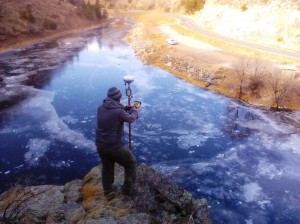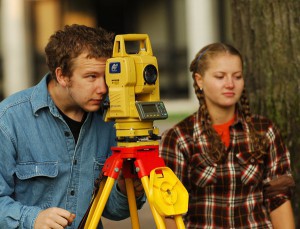How Oil and Gas Surveying Will Change in 2015
 In the early days of 2015, the oil and gas industry finds itself at a crossroads: external forces are in play, creating a situation where companies have to get accurate, detailed land surveys quickly, without having to pay too much for them. Those companies that can ensure the most affordability and value possible from their oil and gas surveying will be the ones that are in the best position to succeed in 2015 and beyond.
In the early days of 2015, the oil and gas industry finds itself at a crossroads: external forces are in play, creating a situation where companies have to get accurate, detailed land surveys quickly, without having to pay too much for them. Those companies that can ensure the most affordability and value possible from their oil and gas surveying will be the ones that are in the best position to succeed in 2015 and beyond.
In this post, we’re going to take a look at the future of oil and gas industry and provide a quick overview of some of the ways that land surveying is changing the industry in 2015.
Three ways that oil and gas surveying will change in 2015
1. The surveying technology that companies use will grow more sophisticated.
Whenever an industry faces new challenges, there will always be new technologies available to help companies overcome those challenges. This is certainly true of the future of the oil and gas industry. In order to meet their needs for faster, more accurate land surveys at the most affordable rate possible, today’s oil and gas companies have a number of increasingly sophisticated tools in their toolbox. These include things like cloud-based systems for better communication, collaboration, and storage, advanced handheld devices to facilitate better connections between home offices and job sites, and unmanned aerial vehicles to make it easier and safer to conduct land surveys on remote or dangerous terrain.
Although these solutions are available for all oil and gas organizations, only the ones that make an effort to integrate them into their regular business processes will truly benefit from the opportunities they present.
2. Oil and gas companies will need to make turnaround time a priority.
Getting a complete and accurate land survey is a prerequisite for beginning any new project in the field. Without the completed survey, projects will have to be delayed, which costs time and money for everyone involved: that’s why it’s so important to be able to turn these surveys around quickly.This has always been the case for as long as there has been an oil and gas industry, but in 2015—when the need for value is the greatest it has ever been, and the technology needed to create that value is readily available for anyone to apply—continuing to turn out slow land surveys is simply no longer acceptable.
In 2015, oil and gas companies will focus on making quick land surveys an established part of their organizational culture. This means adopting new technologies and implementing new processes to ensure that delays are avoided as much as possible.
3. The accuracy of land surveys will reverberate throughout the entire construction process.
Most oil and gas leaders understand that accurate land surveys are important, but just how important are they really, particularly in 2015? The accuracy of a land survey affects everything that a company does after it, from the pre-project planning to the actual construction of the project itself. It’s no exaggeration to say that an accurate land survey is the foundation that the entire project rests on; if there are problems with the foundation, it could result in project delays and additional costs later on in the project.
Final Thoughts on the Future of the Oil and Gas Industry
Oil and gas surveying is changing. The companies that insist on doing things the same way they’ve always done them will find themselves quickly left behind, while those that adapt to the change and ensure quick, accurate, and cost-effective land surveys will flourish. To learn how land surveying services from Landpoint could help your company succeed in 2015, contact us today.



